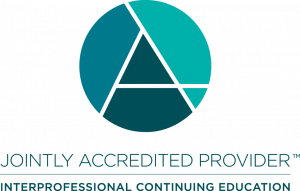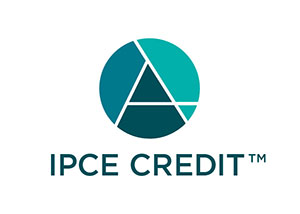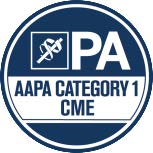Facilitator: Sherry Larkins, PhD, Director of International Programs and Research Sociologist, Integrated Substance Abuse Programs at the University of California, Los Angeles – Semel Institute for Neuroscience and Human Behavior
Cost: No fee
Target Audience: Physicians, nurse practitioners or other advanced practice nurses, PAs, psychologists, social workers, clinical administrators and healthcare teams.
Credit Designations Available: AMA PRA Category 1 Credit™, Nursing Contact Hours, AAPA Category 1 CME credit, SW CE credit, and Interprofessional Continuing Education (IPCE) credit.
Webinar Description: Once your clinical site leadership has demonstrated an interest in exploring buprenorphine or other pharmacotherapies as a treatment option for opioid use disorder (OUD) patients, you must determine how to best assess organizational needs in a number of key areas including screening and identification, clinical capacity, monitoring, referral, community engagement, and more. How do you ensure the broader clinical workforce is properly trained and confident in their ability to treat patients using pharmacotherapies, and ensure OUD patients have access to a continuum of treatment and care services? This session will review clinic-wide implementation of new medications, and address ways to engage, identify and motivate site champions to work toward the implementation and integration of this clinical service.
Educational Objectives:
- Discuss the critical role of champions and how to strategically select champions and implementation team members
- Prepare a site needs/asset assessment to identify facilitators and barriers to MOUD implementation
- Review the training and certifications required for specific team members to implement MOUD
- Illustrate skills to assess program readiness to implement MOUD and motivate healthcare teams toward adopting this evidenced-based practice
Accreditation and Certification of this activity:
 In support of improving patient care, this activity has been planned and implemented by Addiction Technology Transfer Center Network and American Academy of Addiction Psychiatry. American Academy of Addiction Psychiatry is jointly accredited by the Accreditation Council for Continuing Medical Education (ACCME), the Accreditation Council for Pharmacy Education (ACPE), and the American Nurses Credentialing Center (ANCC) to provide continuing education for the healthcare team.
In support of improving patient care, this activity has been planned and implemented by Addiction Technology Transfer Center Network and American Academy of Addiction Psychiatry. American Academy of Addiction Psychiatry is jointly accredited by the Accreditation Council for Continuing Medical Education (ACCME), the Accreditation Council for Pharmacy Education (ACPE), and the American Nurses Credentialing Center (ANCC) to provide continuing education for the healthcare team.
In 2020, AAAP also added accreditation from The American Academy of PAs (AAPA), American Psychological Association (APA), Association for Social Work Boards (ASWB) and American Dental Association (ADA).
 Interprofessional Continuing Education (IPCE) Designation Statement:
Interprofessional Continuing Education (IPCE) Designation Statement:
This activity was planned by and for the healthcare team, and learners will receive 1 Interprofessional Continuing Education credits for learning and change.
Physician Designation Statement
American Academy of Addiction Psychiatry designates this enduring material for a maximum of 1 AMA PRA Category 1 Credits™. Physicians should claim only the credit commensurate with the extent of their participation in the activity.
Nursing Designation Statement
American Academy of Addiction Psychiatry is an approved provider of nursing continuing education through AAAP’s Joint Accreditation provider #4008192. This activity is approved for up to 1 Nursing Contact Hours.
 PA Designation Statement
PA Designation Statement
American Academy of Addiction Psychiatry has been authorized by the American Academy of PAs (AAPA) to award AAPA Category 1 CME credit for activities planned in accordance with AAPA CME Criteria. This activity is designated for a maximum of 1 AAPA Category 1 CME credits. PAs should only claim credit commensurate with the extent of their participation.
 Social Work Designation Statement
Social Work Designation Statement
As a Jointly Accredited Organization, American Academy of Addiction Psychiatry (AAAP) is approved to offer social work continuing education by the Association of Social Work Boards (ASWB) Approved Continuing Education (ACE) program. Organizations, not individual courses are approved under this program. State and provincial regulatory boards have the final authority to determine whether an individual course may be accepted for continuing education credit. AAAP maintains responsibility for this course. Social workers completing this course receive 1 continuing education credit.

